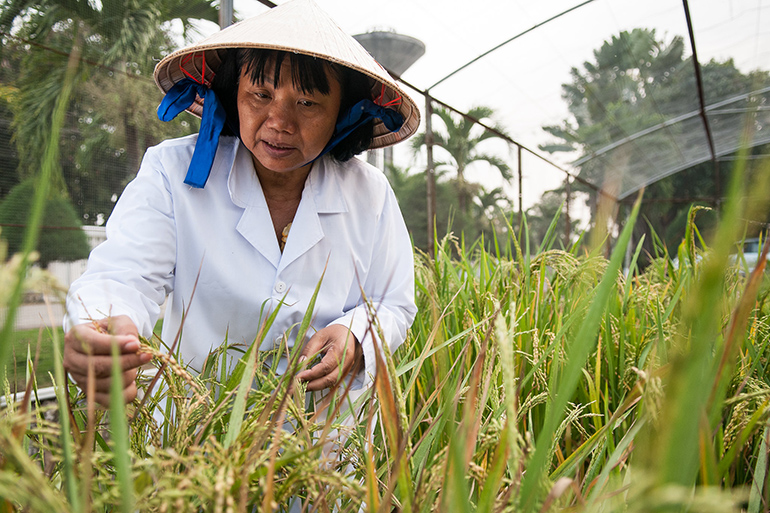
Researchers Report Resequenced Vietnamese Rice Genome
June 23, 2021| |
An international team of researchers from Earlham Institute, International Rice Research Institute (IRRI), genebanks, and rice breeders from Vietnam has generated new genomic data from the local rice varieties of Vietnam that could be a source of novel genes to help breed crops with higher resistance to climate change.
The researchers have analyzed 672 Vietnamese rice genomes, 612 of which are newly sequenced, from the different rice varieties grown in various regions of Vietnam. They compared the new genetic data with the previous global study on rice diversity consisting of 15 worldwide Asian subpopulations from 89 countries. The researchers found that they have previously overlooked four Japonica and five Indica subpopulations that are locally grown and have not been used before in producing elite rice varieties. Researchers called it Indica-5 subpopulation (I5) which was related to the global Asian data set.
The results of the study have discovered the I5 subpopulation as a valuable genetic resource from the highly diverse varieties of rice in Vietnam. The newly sequenced genome could help breeders create high-yielding and sustainable rice varieties that can adapt to extreme environmental conditions such as unpredictable weather, high salinity, and drought in high-altitude places. The genomic data could also provide solutions to lessen the greenhouse gas emission on rice farming that causes global warming.
For more details, read the news article from Earlham Institute and the journal article in Rice.
| |
You might also like:
- Scientists Sequence Vietnamese Rice Genome
- Vietnam-UK Team Decode Vietnamese Rice Genomes
- UK and Vietnam to Improve World's Top Staple Food
Biotech Updates is a weekly newsletter of ISAAA, a not-for-profit organization. It is distributed for free to over 22,000 subscribers worldwide to inform them about the key developments in biosciences, especially in biotechnology. Your support will help us in our mission to feed the world with knowledge. You can help by donating as little as $10.
-
See more articles:
-
News from Around the World
- Could Gene Drive Protect Nature?
- Kenya National Biosafety Authority Approves Genetically Modified Cassava
- Bioactive Packaging Keeps Strawberries Fresh
- Plant Immune Proteins Kill Cells to Defend against Pathogens
- Pakistan's Government Committed to Develop Agriculture for Food Security
- Researchers Report Resequenced Vietnamese Rice Genome
- Award-winning Purple Tomato to be Released in China in Disney Packaging
- EFSA Publishes Scientific Opinion on Herbicide Tolerant Oilseed Rape 73496
- Genetics Allows Selection of Cattles that Produce Less Methane
-
Research Highlights
- More Olive Genomes Identified by Scientists
- Experts Tackle Induced Mutagenesis in Date Palm Breeding
-
Plant
- Study Finds Gene Editing in Cattle Produces No Off-Target Mutagenesis
-
Read the latest: - Biotech Updates (April 24, 2024)
- Gene Editing Supplement (April 24, 2024)
- Gene Drive Supplement (February 22, 2023)
-
Subscribe to BU: - Share
- Tweet

